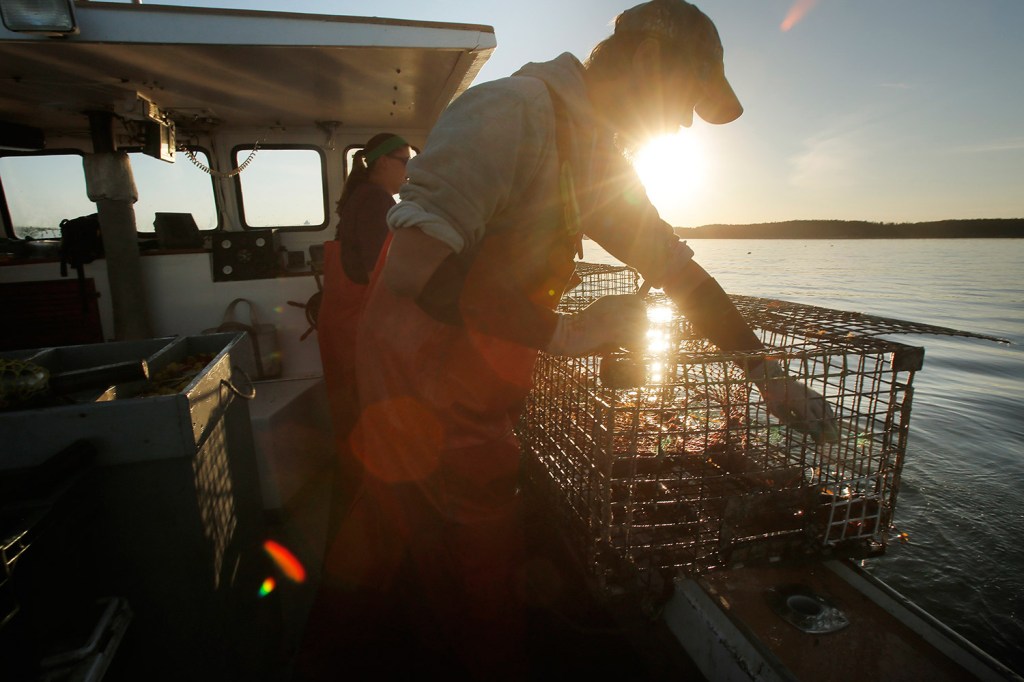The Maine Department of Marine Resources wants to raise the price of commercial fishing licenses for the first time in seven years, using the $600,000 the hikes would generate to pay for spending increases while honoring Gov. Paul LePage’s request to keep the department’s budget flat.
If approved by the Legislature, the proposed fee increases would range from as little as $1 for a Maine resident to harvest green crabs to as much as $114 for a lobsterman with two sternmen. Under the new fee schedule, which would take effect January 2018, the cost of securing a Class III lobster license would top $1,000 for the first time, hitting $1,002.
The fee hike would enable the Department of Marine Resources to hire an additional lobster biologist, outfit its science staff with field technology and pay for Marine Patrol officer raises and ballistics vests, among other things, without increasing the department’s $21.3 million bottom line, department spokesman Jeff Nichols said.
For example, the fee increases would pay for remote data entry technology. Currently, department science staffers spend 28 percent of their time entering data gathered in the field, Nichols said. With the new technology, staff scientists would spend more of their time conducting the research and data analysis needed to sustain the state’s valuable marine resources in a changing ocean environment, he said.
The fee hike would generate about $600,000 in additional revenue for the state general fund, all of which the department wants the state to use to cover the budget gap within the department. Currently, about $377 of an $888 Class III lobster license comes back to the department – the rest goes into specialized funds to pay for lobster research, establish lobster hatcheries, free seed lobsters and lobster marketing.
The proposed fee hike was greeted with grim-faced silence by the fishermen who attended a Lobster Advisory Council meeting in Augusta last week.
Commissioner Patrick Keliher attributed the $600,000 shortfall to a flat-funded department budget. He said LePage believes the minimum wage increase and income tax surcharge ballot initiatives approved by voters in November will hurt the state budget, so he ordered the Department of Marine Resources to deliver a flat budget despite some unavoidable spending increases, like the Marine Patrol raises adopted by the Legislature last year.
“Up until the passage of those (ballot initiatives), frankly, the department budget was looking good,” Keliher said. But “when those (initiatives) passed he directed significant cuts. … In order to maintain the programs we have in place, and in order to maintain more of a central research budget for lobsters, we have put together an increase package.”
Fee hikes are not the only thing the department is doing to avoid curbing its science or cutting its staff, Nichols said. The department also is eliminating a vacant licensing position, cutting its vehicle fleet, closing a research library and temporarily closing a West Boothbay Harbor lab where animals are held that are being displayed in the state aquarium, he said.
Keliher will present his budget to the Legislature’s Marine Resources and Appropriations committees, most likely in February or March, he said.
Under the proposed fee schedule, a Class I lobster license would go up $38, a Class II license that enables a fisherman to have one sternman aboard would go up $76 and a Class III license that allows two sternmen would go up $114, the biggest increase proposed across all license types. License holders who are 70 years old or older or under 18 years of age would face smaller increases, as would apprentices, students and non-commercial fishermen.
Commercial finfish licenses would rise between $15 and $39, depending on the species. A clamming license would go up $80, a scallop diver’s license would go up $58 and a scallop dragging license $43. Dealer’s licenses would go up also, including $94 for lobster dealers and $113 for elver dealers.
Send questions/comments to the editors.




Success. Please wait for the page to reload. If the page does not reload within 5 seconds, please refresh the page.
Enter your email and password to access comments.
Hi, to comment on stories you must . This profile is in addition to your subscription and website login.
Already have a commenting profile? .
Invalid username/password.
Please check your email to confirm and complete your registration.
Only subscribers are eligible to post comments. Please subscribe or login first for digital access. Here’s why.
Use the form below to reset your password. When you've submitted your account email, we will send an email with a reset code.